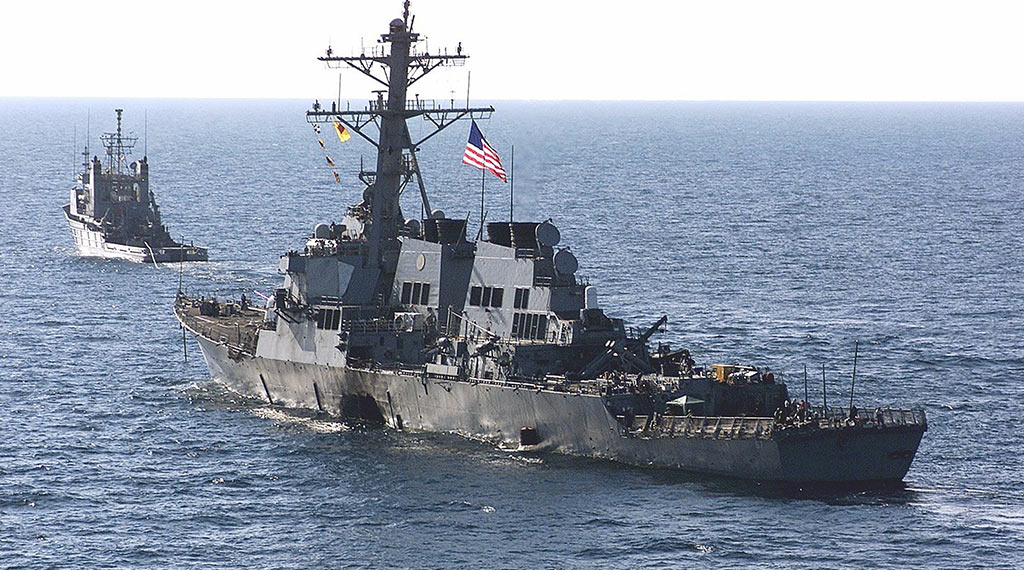Another anniversary—This one largely forgotten

Late summer and early fall are unfortunately full of sad anniversaries.
First, the 20th anniversary of the September 11 jihadist terrorist attack that struck New York and Washington, killing nearly 3,000 Americans.
Lost by many in that solemn commemoration was the 9th anniversary of an attack on our consulate in Benghazi, Libya, in which a U.S. ambassador, Christopher Stevens, U.S. Foreign Service officer Sean Smith, and CIA contractors Tyrone Woods and Glen Doherty were killed by Ansar al-Sharia jihadists.
Perhaps even more forgotten is the anniversary that passed yesterday, October 12.
21 years ago, Al Qaeda attacked the USS Cole, a guided missile destroyer, in Aden Harbor in Yemen.
Seventeen U.S. Navy sailors were killed in that attack and 37 others were wounded. The Cole very nearly sunk. It was only through the heroic damage control efforts of her crew that she remained afloat and was subsequently transported on a heavy lift vessel to be repaired and returned to service over a year later.
Then-President Bill Clinton’s misguided policies figured prominently in this attack.
Early in the Clinton administration in 1993, the U.S. military’s humanitarian operation in Mogadishu, Somalia, was attacked by militias that we now know were aided by Al Qaeda. Clinton’s decision to withdraw from Somalia was noted by Osama bin Laden, who believed that the U.S. could be forced from the entire region because Americans could not bear taking casualties.
In August 1998 Bin Laden struck again, this time with bombings of two U.S. embassies in Kenya and Tanzania. Clinton responded by launching cruise missiles at training camps in Afghanistan that Clinton knew to be empty. Again, Bin Laden noted America’s weak response.
The Clinton administration cut back our Navy drastically. Clinton balanced the U.S. budget on the backs of our national security. That included decommissioning fleet replenishment ships and not replacing them. That meant that destroyers like the USS Cole would have to pull into foreign ports to refuel much like merchant vessels do. Therefore, the USS Cole was refueling in a foreign port in a tense area of the world not belonging to a U.S. ally.
Al Qaeda observed the procedures used to refuel U.S. naval vessels in Aden Harbor, and they planned the attack which struck the Cole.
Osama bin Laden’s Al Qaeda claimed responsibility for the attack, and there was ample circumstantial evidence indicating that was true. Despite this, Clinton didn’t even have the stomach for a cruise missile strike in the waning months of his presidency. No U.S. response was launched between October and January when Clinton left office.
Once again, Bin Laden took note of the weak U.S. response and planned more and bigger operations, culminating in the September 11, 2001 attack.
The rest, as they say, is history.
- It’s time to stand up against leftist doxxing - February 18, 2026
- President Trump Takes a Much Needed Step on Fentanyl - December 15, 2025
- Texas leads the way against the Muslim Brotherhood - November 25, 2025
